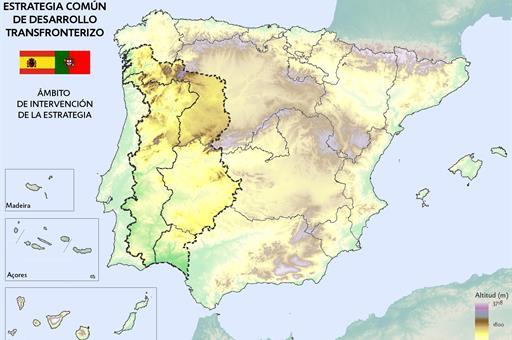Thessaloniki gets ready for its metro launch in November
The underground rapid transit lines have been under construction for almost two decades due to various project delays
 TheMayor.EU logo
TheMayor.EU logo This is the vision of the leaders of Spain and Portugal, expressed at a high-level summit
On Saturday, 10 October, there was a high-level summit between the prime ministers of Spain and Portugal, Pedro Sanchez and Antonio Costa, concerning the issues that have been plaguing the development of the regions which line both sides of the two countries’ border. The meeting, which took place in Guarda (Portugal) was remarkable for the commitment shown by both governments to tackle long-standing questions. A commitment which took a tangible form under a document called Common Strategy for Transborder Development that was signed by the two sides.
The Strategy concerns a considerable chunk of the Iberian Peninsula, with a total of 2782 municipalities and 5 014 600 people that comprise the Transborder Region in question. The border itself spans over 1200 kilometres in length.

The cross-border region spans along the 1214-km long border. Source: Gobierno de España
Despite the vast territory and considerable population, these territories have been suffering a variety of problems in the past years and decades. They are generally considered to be among the poorest in both countries, located in hinterlands far removed from the more prosperous coastlines and capitals.
They are more rural and defined by generally rugged terrain. As a result of the weaker economies, their municipalities have been subjected to continuous depopulation trends. Another issue that has been a long-standing problem is the poor railway transport connectivity across the border, with two of the three corridors still under delayed construction.
“The Strategy recovers the centrality of this territory in Portugal and Spain, and provides a territorial strategic vision, which aims to become a positive and innovative example of cooperation in Europe,” affirmed Teresa Ribera, the Spanish Deputy Prime Minister.
She added that “the document prioritizes cross-border and multi-country projects as vectors for recovery and for building social, economic and environmental resilience on a European scale. In this sense, our countries are pioneers”.
The vectors, which Mrs Ribera has referred to concern the specific measures that will be undertaken in order to see the completion of strategic objectives. In summary, these are, as follows:
The overall vision of the authorities from both countries is to gradually transform the region, in the words of the Portuguese Prime Minister Costa, into “one new centre of our Iberian market”.

The underground rapid transit lines have been under construction for almost two decades due to various project delays

Now you can get your wine in Talence by paying directly in Bitcoin

That’s because the state has to spend money on updating the railway infrastructure rather than subsidizing the cost of the popular pass

Rethinking renewable energy sources for the urban landscape

The examples, compiled by Beyond Fossil Fuels, can inform and inspire communities and entrepreneurs that still feel trepidation at the prospect of energy transition

Now you can get your wine in Talence by paying directly in Bitcoin

The 10th European Conference on Sustainable Cities and Towns (ESCT) sets the stage for stronger cooperation between the EU, national and local level to fast track Europe's transition to climate neutrality.

At least, that’s the promise made by the mayor of Paris, Anne Hidalgo

The underground rapid transit lines have been under construction for almost two decades due to various project delays

At least, that’s the promise made by the mayor of Paris, Anne Hidalgo

Hostal de Pinós is located in the geographical centre of the autonomous region

Despite its church-y name, the district has long been known as the hangout spot for the artsy crowds

Urban dwellers across the EU are having a say in making their surroundings friendlier to people and the environment.

Forests in the EU can help green the European construction industry and bolster a continent-wide push for architectural improvements.

Apply by 10 November and do your part for the transformation of European public spaces

An interview with the Mayor of a Polish city that seeks to reinvent itself

An interview with the newly elected ICLEI President and Mayor of Malmö

A conversation with the Mayor of Lisbon about the spirit and dimensions of innovation present in the Portuguese capital














